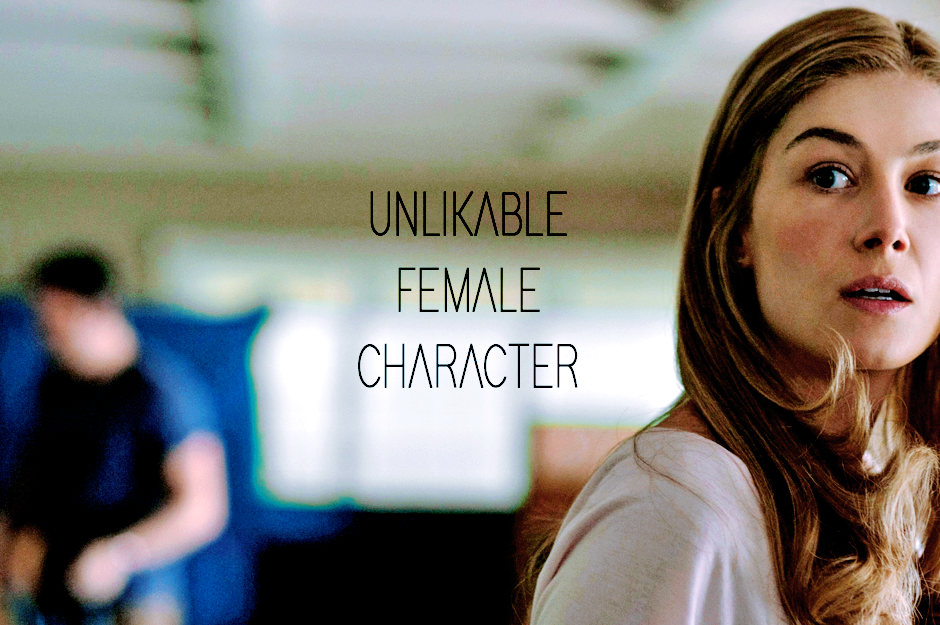
I’m always ranting about Unlikable Female Characters and what exactly makes them unlikable. There are some that I want to protect, some I love, some I understand. But this other week I was reading a book that featured one of them, and I just couldn’t get into her character.
After I stopped reading, I finally realized what exactly made me really dislike her. Mostly, it was because she insisted on dragging all the other female characters down.
Look, it’s understandable why we classify some female characters as unlikable – they’re awful to other people, they are problematic, they don’t like doing typically girly things. Sometimes those female characters are people who speak up and refuse other’s expectations. Sometimes they’re arrogant and confident of themselves. Sometimes they’re snarky and hate everyone around them. There isn’t a mold when it comes to unlikable female characters, which is why it makes them so interesting.
I have spoken previously about my Problematic Fave™ Amy Dunne here on the blog, and why Gillian Flynn’s character arcs are just the best. When Gillian writes, I feel like her women are real – even though they’re not likable at all. This is a very interesting concept, and because we hold female characters’s personalities and traits to a higher standard than we hold male’s (this is true, don’t @ me), it often feels like we just cannot simply like female characters unless they’re perfect, idolized versions of what we think girls ought to be.
This, of course, tends to hurt any reader – we’re constantly driving for what it means to be ‘perfect’, and one of the adjectives that come often within this narrative is the term LIKABLE. What makes a person likable? Do they have to be meek? Do they have to be funny? For male characters, likable can encompass any number of traits – traits that often, in a female character, are viewed as bad or unrealistic. Take Jace Herondale, personal favorite of a huge number of readers. He’s arrogant and conceited and often reckless. A female character who acts exactly the same way (Celaena Sardothien, for example) can be considered highly unlikable. I can’t count the number of reviews that I’ve read of Throne of Glass calling Celaena an appaling character and someone who just wants attention. This is a double standard in the reading community, and one that actually affects us in real life as well.
It’s good to deconstruct this inherent concept we have about female characters, so slowly you can enjoy them as well. Characters are who they’re meant to be – problematic, arrogant, sad, mean. They’re allowed to feel different emotions because they mirror real people, who feel a number of different emotions on any given day. What characterizes a character as ‘whining’ sometimes can be the exact same way any of us would react in a situation. I like to use Katniss Everdeen as an example especially for this occasion. In book 3, Katniss is in a very fragile place where she doesn’t want to fight anymore and has panic attacks, and by many readers is seen as ‘whiny’. In her situation, would any of us be different? After seeing so many deaths, the wreckage that was once your home and having your loved ones taken away, would we react differently?
This is the way I have embraced many unlikable characters as my loved ones. But coming back to my main point, I want to discuss a character that I really can’t sympathize with in any way.
You see, this one girl in this book thought she was better than everyone else. And not in the usual arrogant I’m-the-best-assassin-in-this-fantasy-land type, but she constantly thought herself above all the other girls. She brought them down and called all of them ‘bitches’. And it was just so cringe-worthy I could barely finish the book. The worst part is that the author was regarded in twitter as a feminist (this book was out in 2012, so I’m really hoping the next ones are better!).
In the end, I came to the conclusion that there is indeed one type of character I can’t abide to – the one who hates the other girls and tries to compare herself in the way of ‘I’m not like all the others’. Because newsflash: we’re girls, and we’re exactly like all the other girls.
There is no paradigm to describe what being a girl is – it’s not something you can just say “this is what a being a girl means”, because we’re not a unit. We don’t have qualities or flaws that are one and the same. We don’t all share one single thing, with maybe the exception of identifying as a girl. That’s all it takes.
So when writing a female character, this is a very important thing to consider. Don’t let her bring down the other girls, because we need them to be stronger. We need all the women in our lives who inspire us to become better. We need to rise them up. Rise them together, and make them stronger.
